
The Musical Legacy of Mozart in Vienna
Mozart’s life and legacy
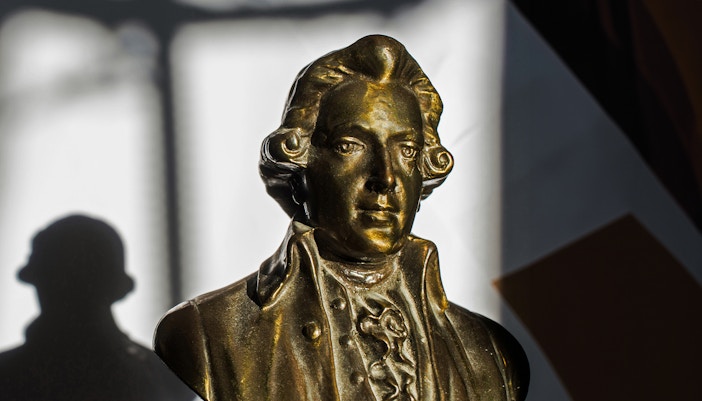
Early life in Salzburg
Born in 1756 in Salzburg, Austria, Wolfgang Amadeus Mozart displayed extraordinary musical talent from a young age, composing his first piece at just five years old. Recognizing his son's genius, his father, Leopold Mozart, took him on tours across Europe, where the young prodigy amazed royal courts and audiences with his mastery of the harpsichord and violin. These early performances refined Mozart's skills and exposed him to various musical styles that would later shape his compositions.
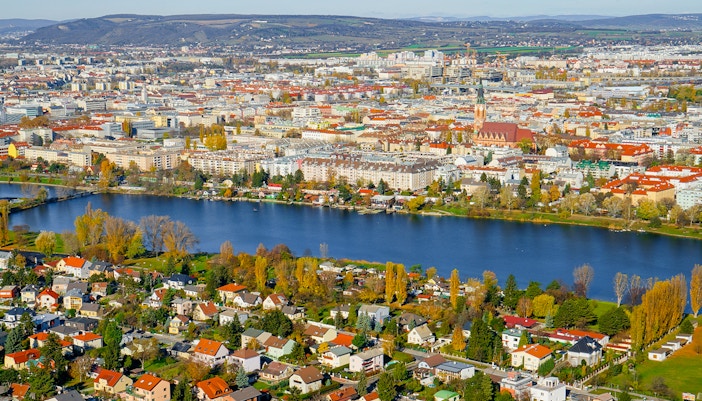
Move to Vienna and key compositions
In 1781, Mozart moved to Vienna, the vibrant center of Europe's music scene, where he embraced independence as a composer and performer, free from aristocratic patronage. In the city, he created some of his most iconic works, including The Marriage of Figaro and Don Giovanni. These masterpieces highlighted his ability to fuse intricate musical structures with emotional depth and dramatic expression, earning him widespread recognition and acclaim.
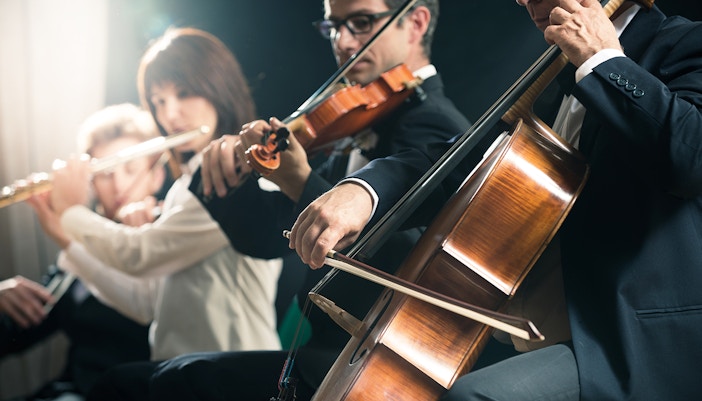
Influence on classical music and operas
Mozart’s contributions to classical music were revolutionary, bringing unmatched emotional depth and technical brilliance to symphonies, chamber music, and operas. He transformed opera by crafting complex narratives and multi-dimensional characters, elevating the genre from simple entertainment to a profound art form.
Famous works by Mozart

Operas
- The Magic Flute: A delightful mix of enchanting melodies, whimsical storytelling, and Masonic symbolism, this opera is one of his most beloved works.
- Don Giovanni: A dramatic tale of a libertine’s downfall, celebrated for its complex characters and intense emotional arcs.
- The Marriage of Figaro: A witty and socially charged opera that explores themes of love, class, and human folly with comedic brilliance.
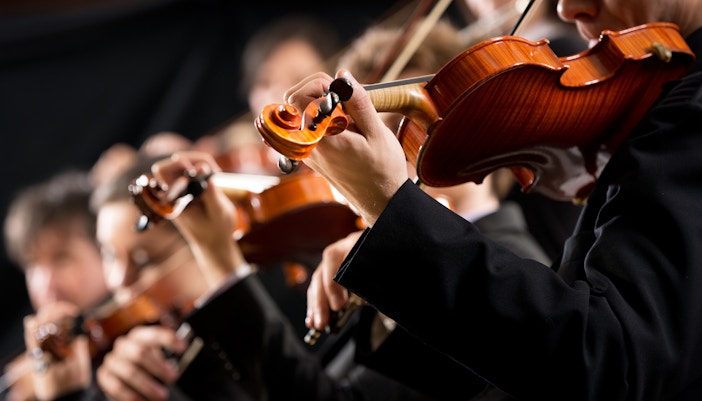
Symphonies
- Symphony No. 40: Often referred to as one of his most emotionally charged works, this symphony is renowned for its lyrical beauty and dramatic tension.
- Jupiter Symphony: Mozart’s final symphony is a grand, triumphant masterpiece, considered a pinnacle of symphonic writing.
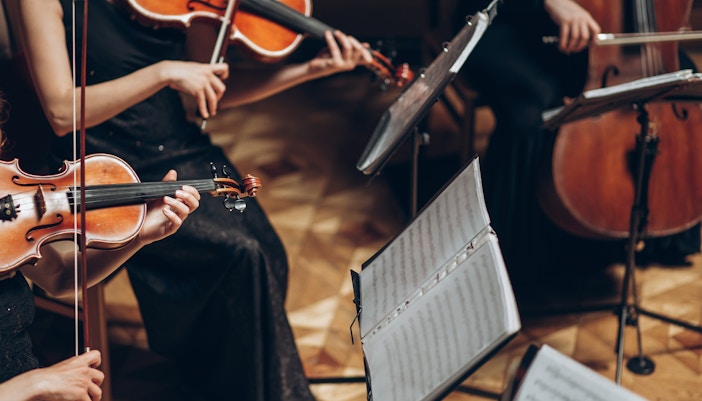
Chamber music and concertos
Mozart’s Chamber Music: Mozart’s piano concertos and string quartets, showcases his extraordinary ability to blend complexity with accessibility. These works are celebrated for their elegance, innovation, and emotional range, making them timeless classics.
Mozart and Strauss dinner concert at KursalonInteresting facts about Mozart
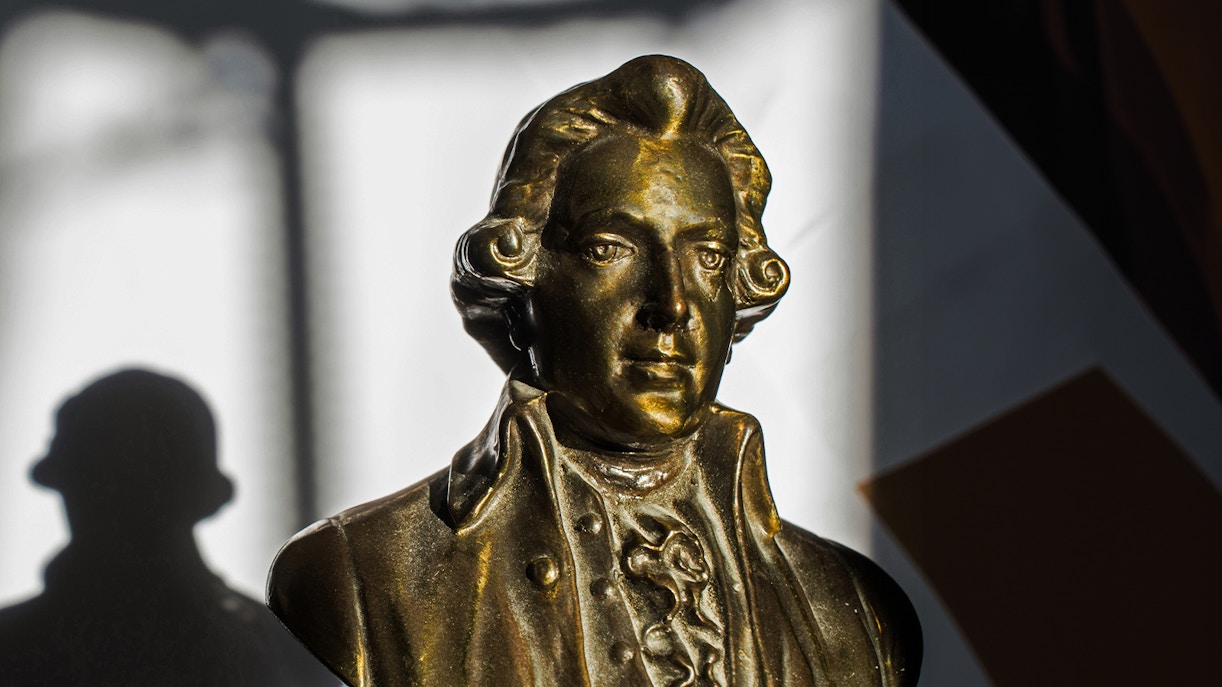
- Child Prodigy: Mozart began composing at the age of five and performed for European royalty as a child. By eight, he had written his first symphony, astonishing the world with his genius.
- Prolific Composer: In his short life of just 35 years, Mozart created over 600 works, spanning operas, symphonies, concertos, and more. His incredible output remains unmatched in its variety and quality.
- Rivalries: While popularized by the film Amadeus, Mozart’s rivalry with Antonio Salieri was exaggerated. Historical evidence suggests a professional relationship tinged with mutual respect rather than hostility.
- Animal Lover: Mozart had a pet starling that could mimic one of his piano compositions. The bird’s talent amused him so much that he wrote a small funeral poem for it when it died.
- Financial Struggles: Despite his immense talent, Mozart often struggled with money due to a lavish lifestyle and lack of stable income, leading to financial difficulties in his later years.
Experience Mozart today
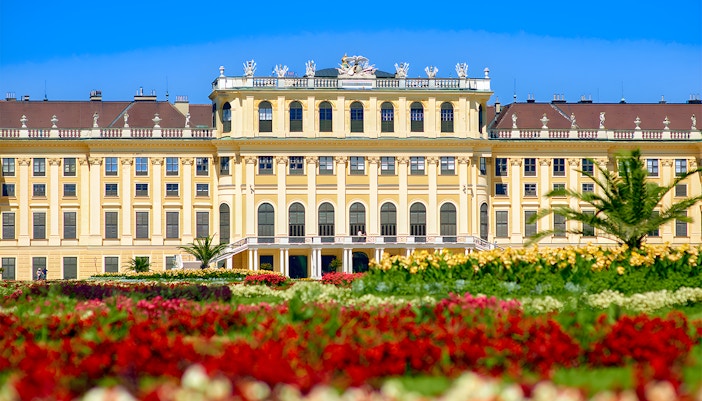
Schönbrunn Palace
Formerly the summer residence of Habsburg royalty, the UNESCO-listed Schönbrunn Palace offers a regal venue for cultural events, often showcasing performances in the historic Orangery where Mozart once played. Renowned for its evening concerts featuring Mozart’s most beloved works, the palace also offers dinner shows and seasonal events like Christmas and New Year’s performances, adding a festive charm.
Schönbrunn Palace concerts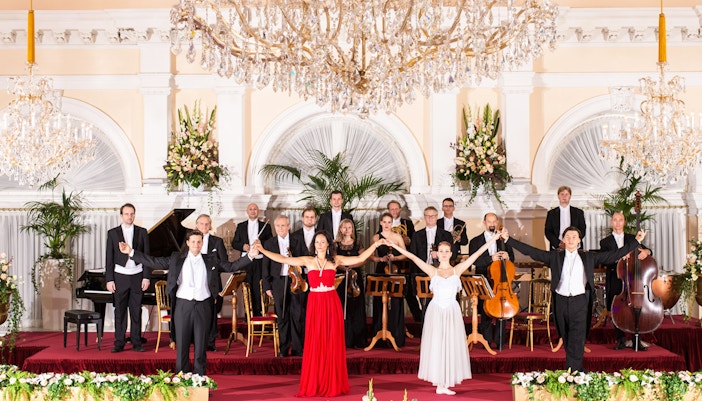
Kursalon
The Kursalon, a charming 19th-century concert hall, captures the elegance of Vienna with its stunning architecture and lush surroundings. Once a lively hub for music lovers, it continues to celebrate its rich history by blending Mozart’s timeless masterpieces with Strauss’s vibrant waltzes. Experience performances that capture the grandeur of Vienna’s golden age, with the option to enhance your evening with gourmet dinners or festive seasonal events.
Kursalon concerts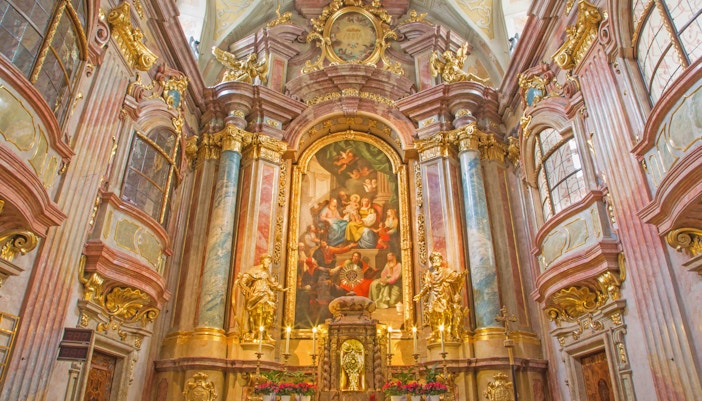
St. Anne’s Church
Tucked away in Vienna’s Old Town, St. Anne’s Church delights visitors with its elaborate frescoes, delicate carvings, and stained glass windows that bathe the space in colorful light. The church’s intimate ambiance and exceptional acoustics make it an ideal venue for chamber music concerts, including Mozart’s string quartets and small ensembles. Whether attending a performance or simply soaking in the ambiance, visitors can experience a unique connection to music and history within its sacred walls.
St. Anne's Church concerts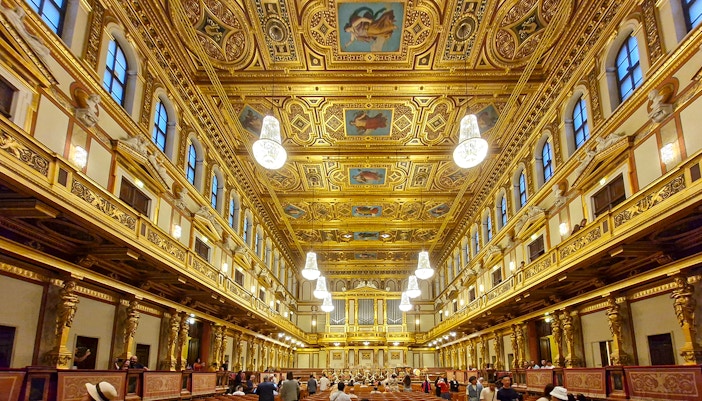
Wiener Musikverein
The Musikverein in Vienna, celebrated worldwide, is home to the Golden Hall, a stunning masterpiece of architecture and acoustics. Renowned for its unparalleled sound quality, the hall serves as the residence of the Vienna Philharmonic and regularly hosts symphonies and opera evenings featuring Mozart’s timeless works. Performances range from grand orchestral masterpieces to themed concerts, offering a rich exploration of Mozart’s contributions to classical music.
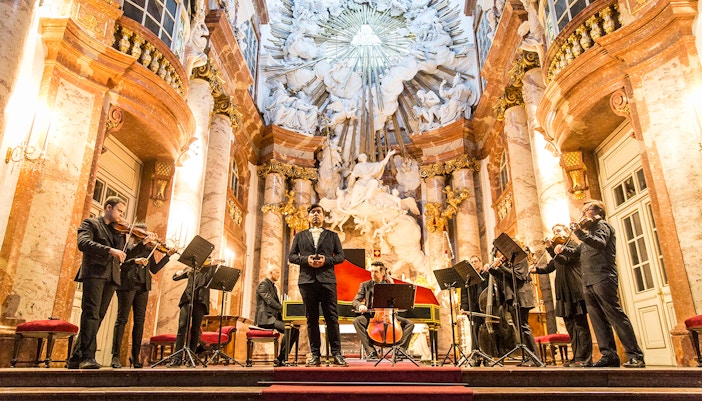
Karlskirche
This stunning baroque church, with its dramatic dome and intricate frescoes, offers a breathtaking setting for live music. Its sacred ambiance enhances the spiritual depth of Mozart’s compositions. Karlskirche is renowned for performances of Mozart’s Requiem and other sacred works. Many of these concerts use period instruments, creating an authentic and immersive listening experience.
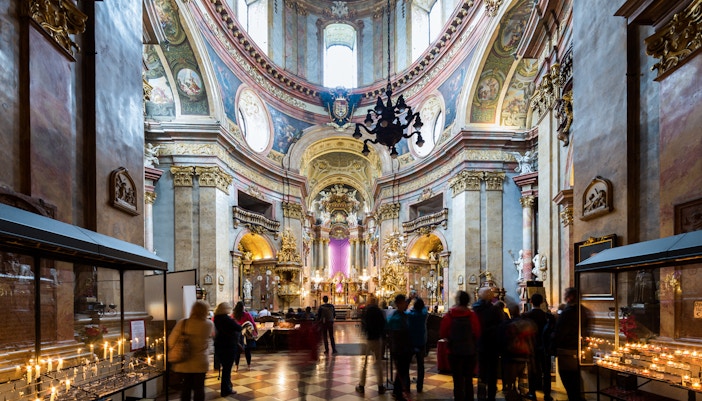
St. Peter’s Church
St. Peter’s Church boasts a rich history and an interior adorned with intricate frescoes, ornate sculptures, and towering columns, creating a stunning visual and spiritual experience. This magnificent setting enhances classical music performances, where the resonant sounds beautifully blend art and spirituality. The church features sacred and classical works by Mozart, focusing on his compositions for the church and organ, showcasing the contemplative and divine elements of his genius.
Visiting Mozart’s landmarks
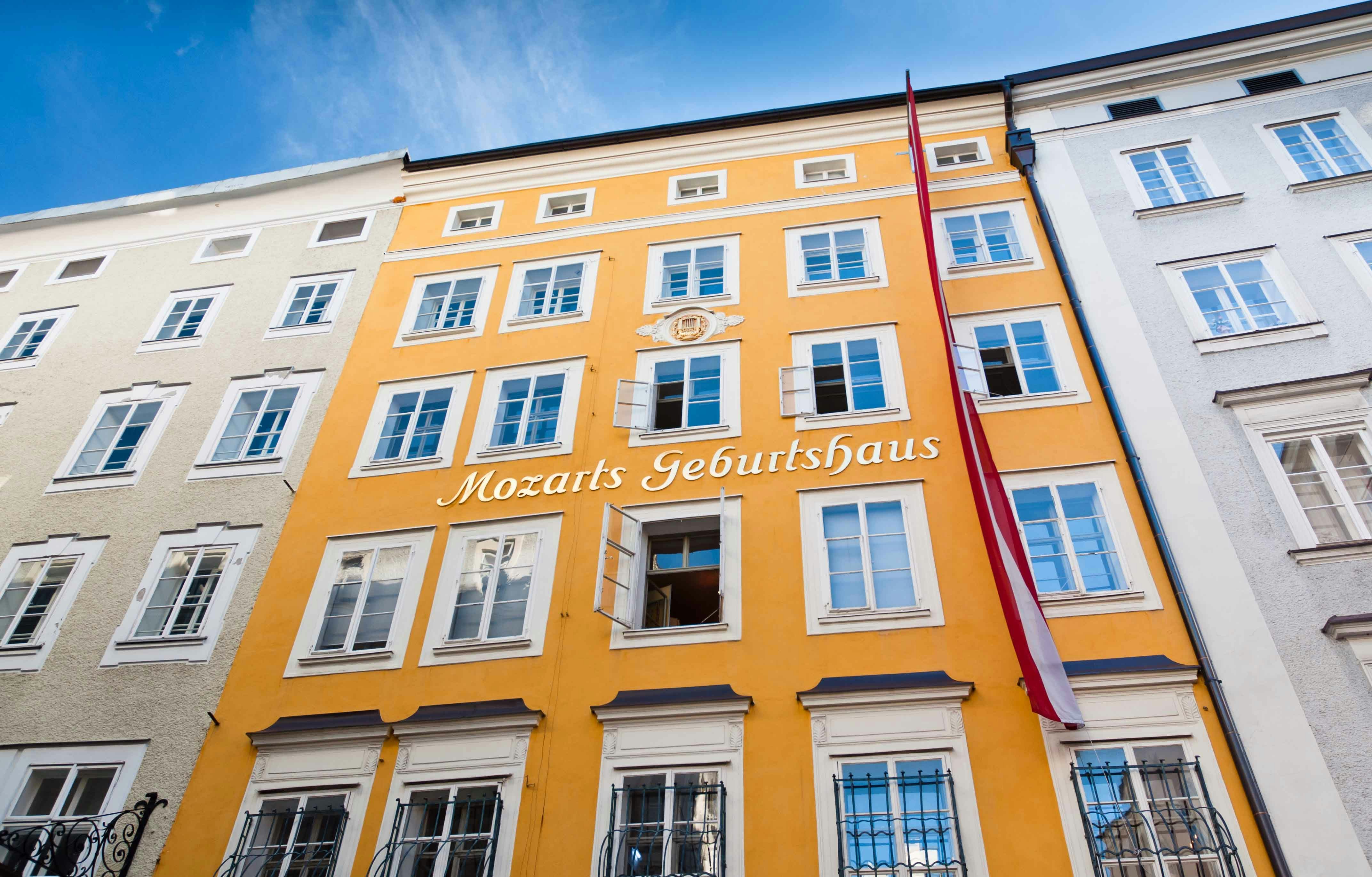

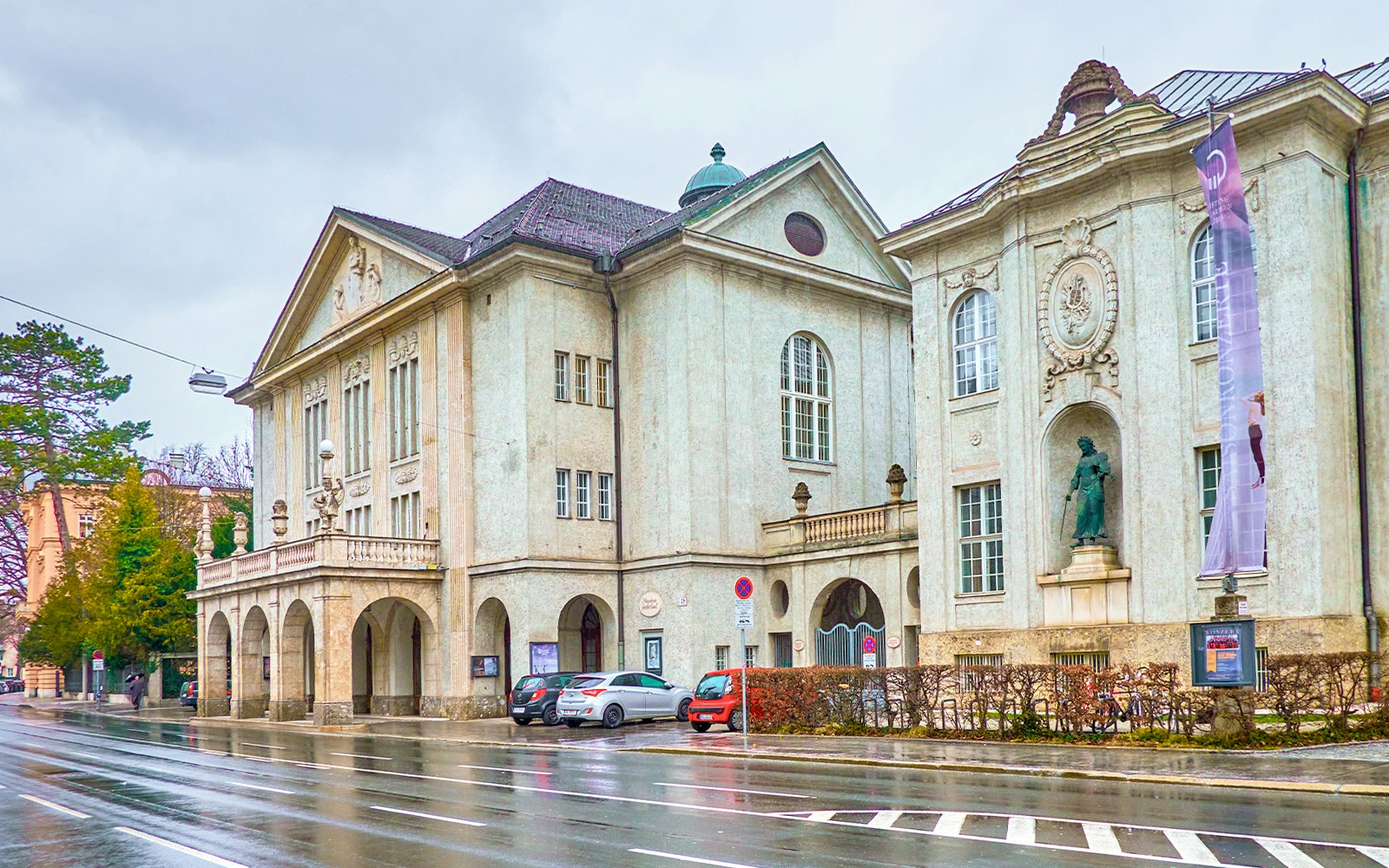

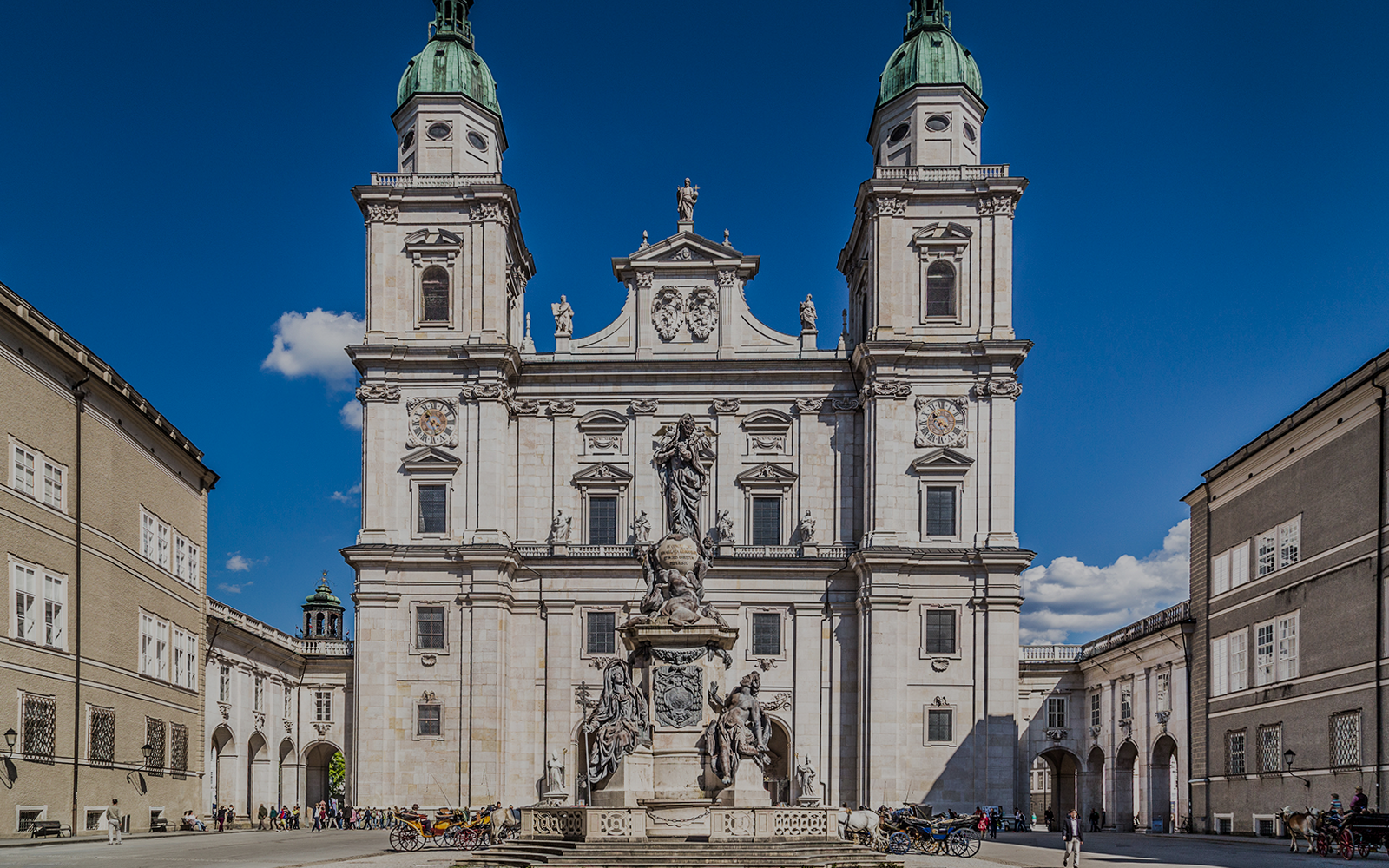
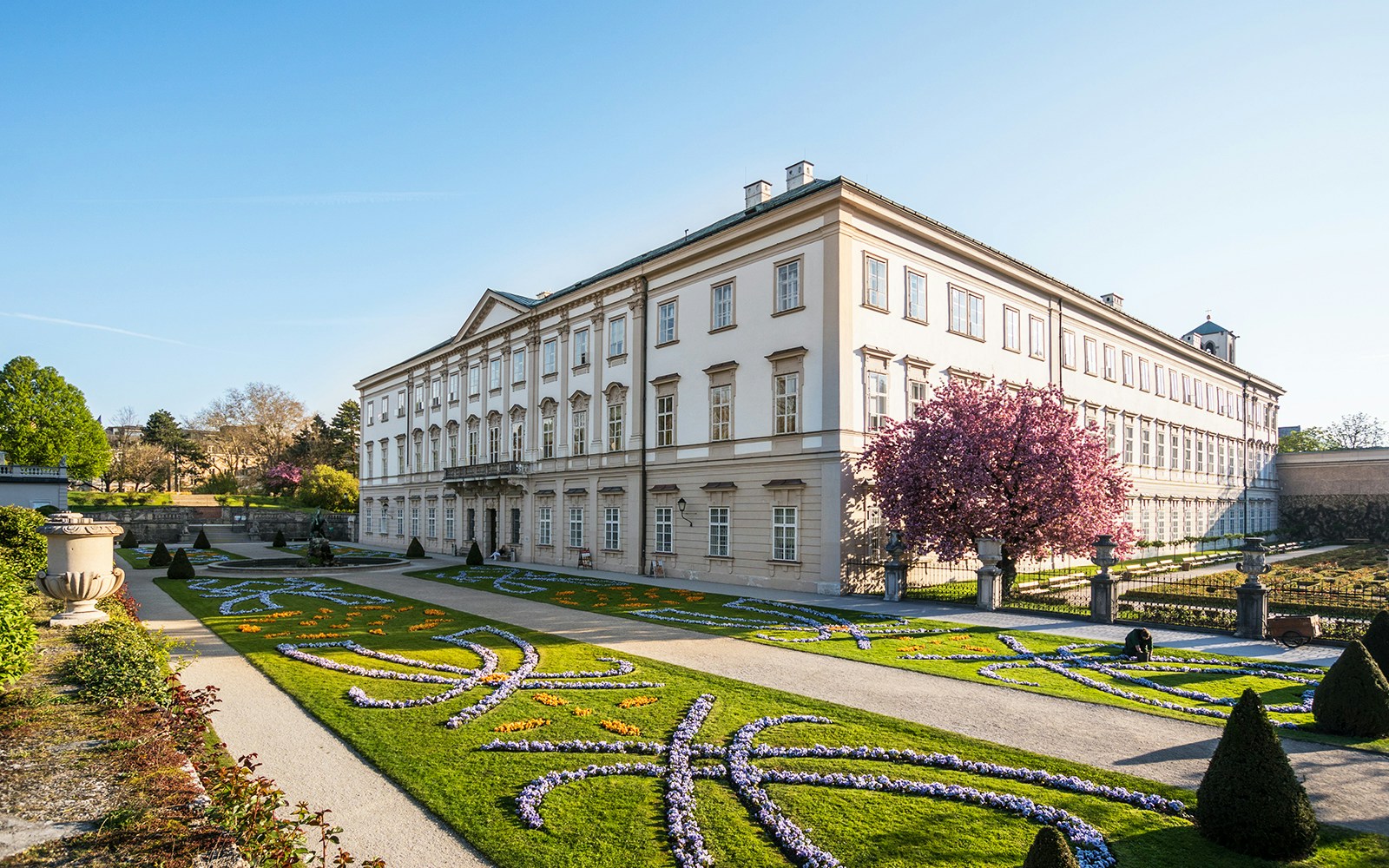
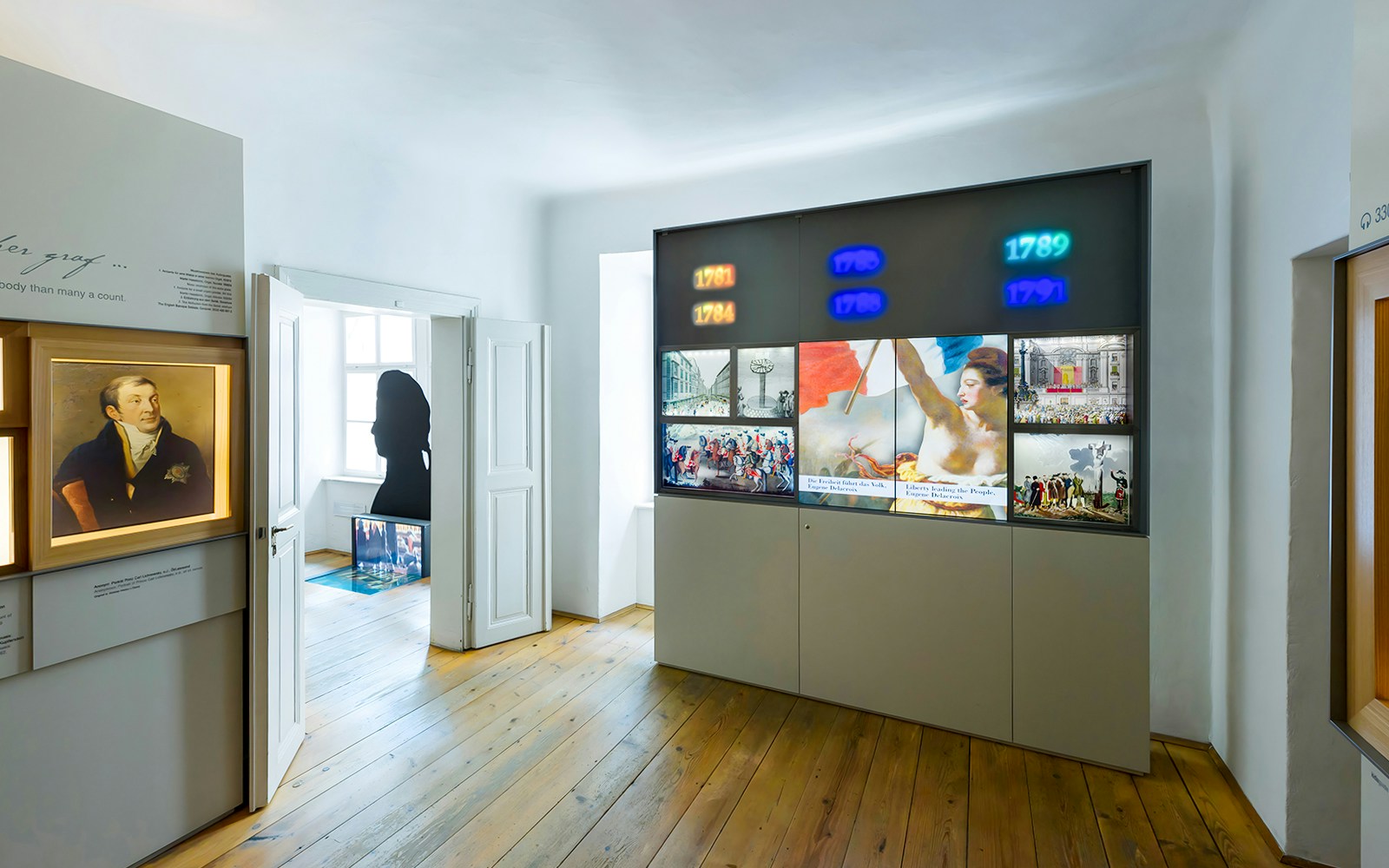
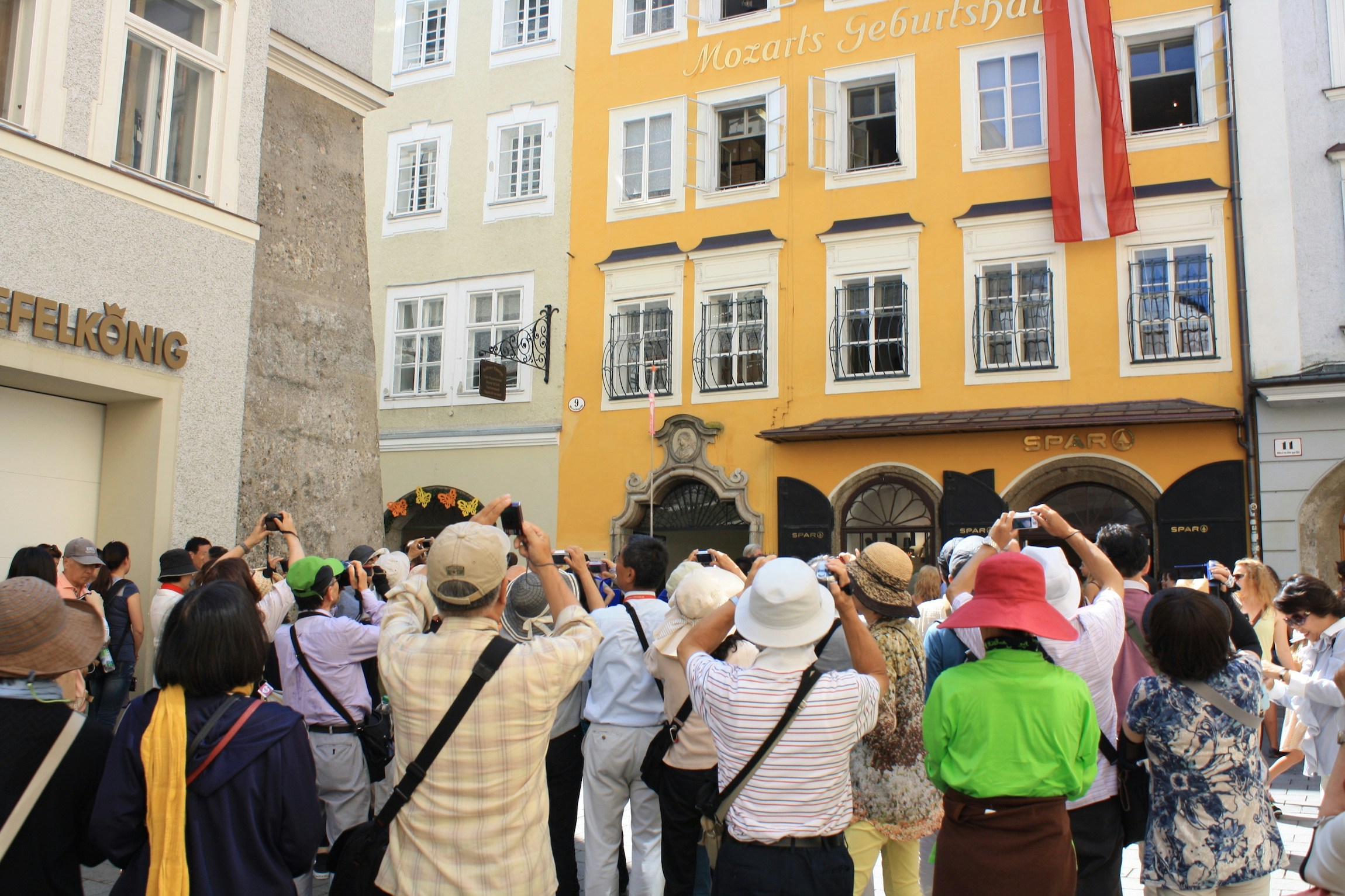
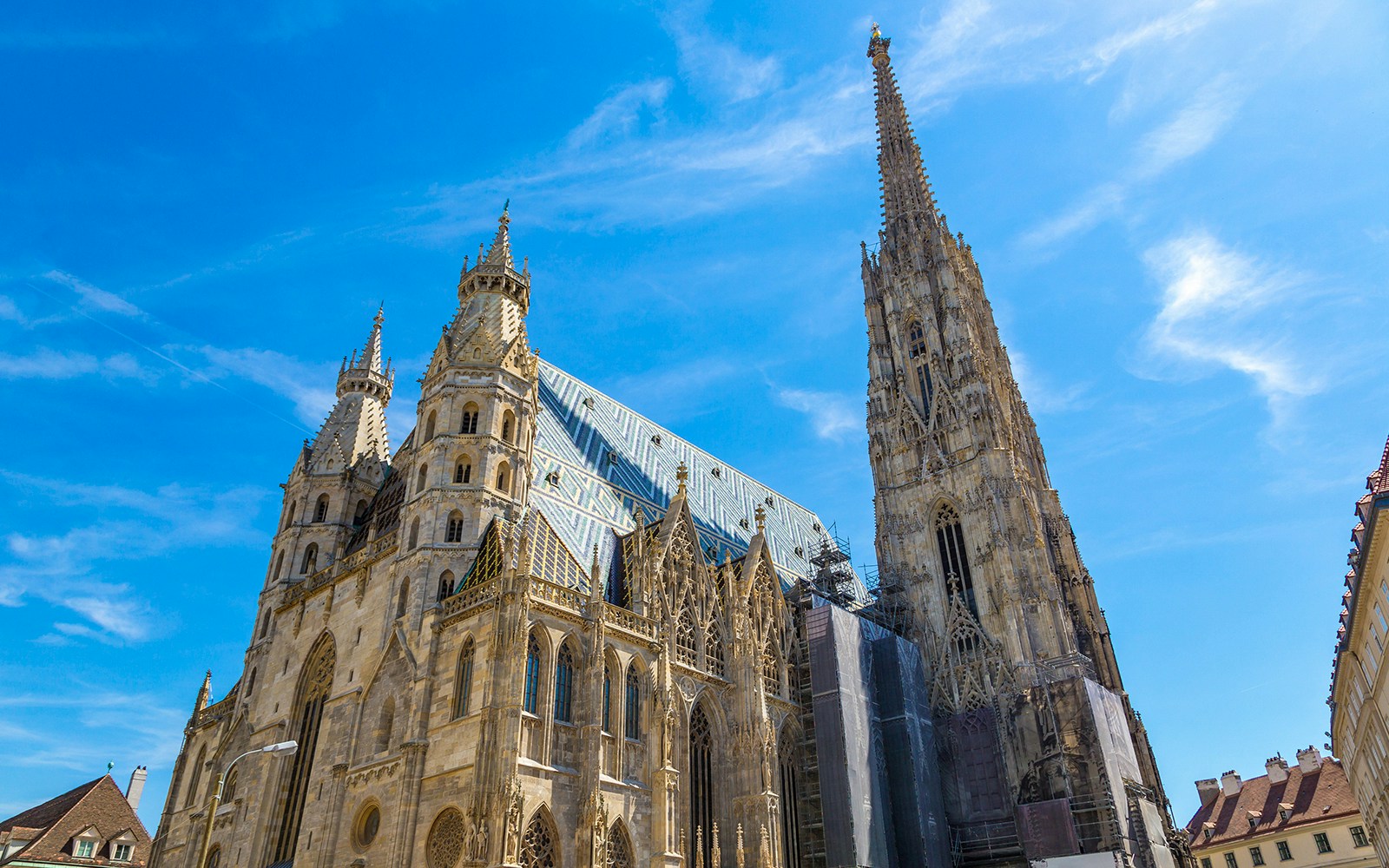
Other classical concerts you might love
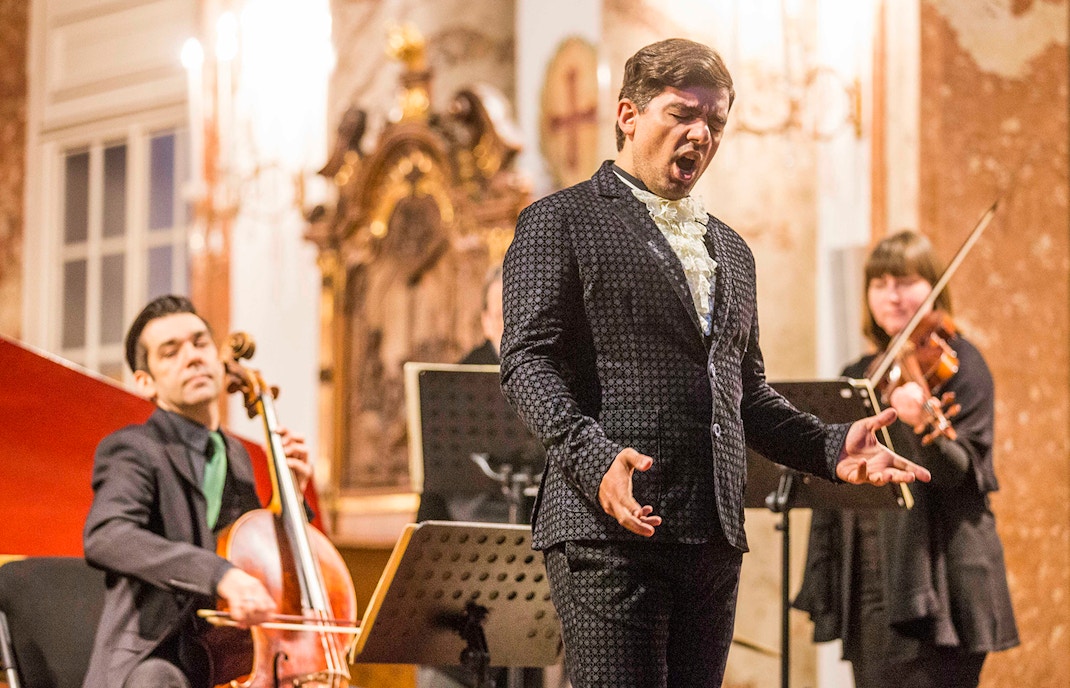
Vivaldi concerts at Karlskirche
Step into the grandeur of Karlskirche for an unforgettable performance of Vivaldi’s Four Seasons. The baroque architecture of this iconic church creates an awe-inspiring ambiance, perfectly complementing the intricate and lively violin concertos. Performed by skilled musicians on period instruments, these concerts transport you to 18th-century Venice, offering a magical evening of classical music.
Vivaldi’s legacy in music history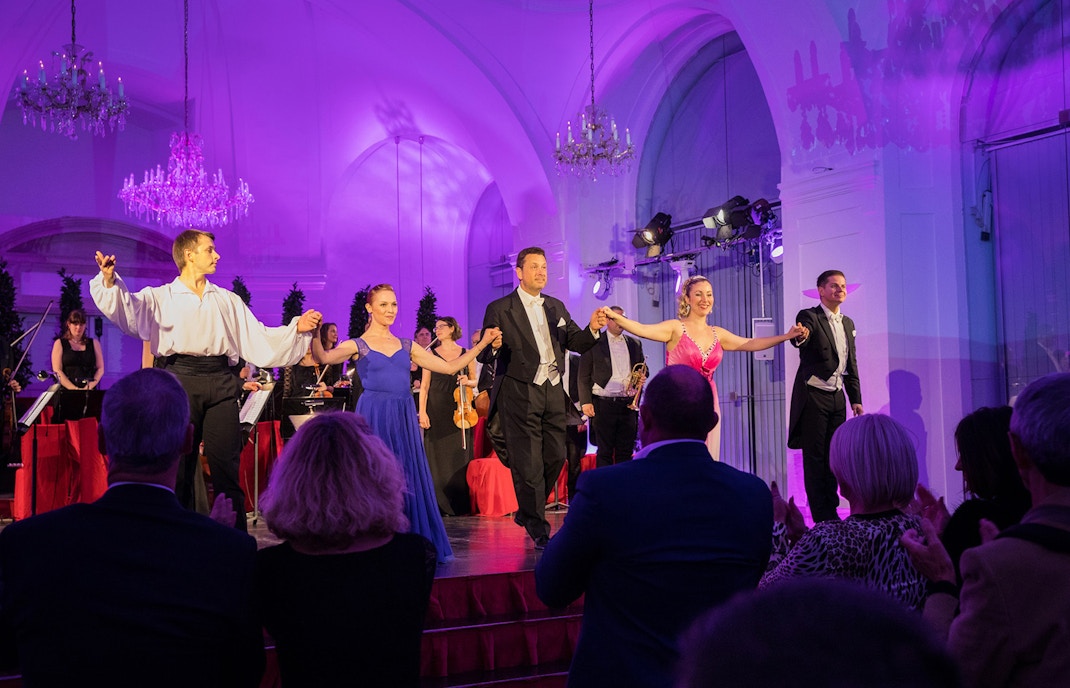
Strauss concerts in Vienna’s palaces
Celebrate Vienna’s other musical legend, Johann Strauss, in stunning venues like Kursalon and Schönbrunn Palace. These concerts often feature Strauss’s famous waltzes, such as The Blue Danube, performed alongside Mozart’s works. The combination of lavish surroundings, elegant costumes, and masterful renditions brings Vienna’s golden era of music to life, offering a truly enchanting cultural experience.
Johann Strauss’s life and legacyFrequently asked questions on Mozart and Vienna concerts
The top venues include the opulent Schönbrunn Palace, the historical Karlskirche, and the elegant Kursalon. Each offers unique settings, from grand concert halls to intimate churches, perfect for experiencing Mozart’s music. Check their schedules for performances tailored to your taste.
While there’s no strict dress code, most attendees opt for smart casual or semi-formal attire. For grand venues like the Musikverein or Schönbrunn Palace, dressing a bit more formally enhances the experience. Comfortable yet elegant is the way to go!
Absolutely! Many Mozart concerts are family-friendly, with shorter formats and accessible music that kids can enjoy. Venues like Schönbrunn Palace also offer dinner-and-show packages, making it a great cultural outing for all ages.
Concerts typically run between 1.5 to 2 hours, including a short intermission. Some performances, especially those featuring dinner or additional acts, might last longer. Always check the details when booking.
Yes, and it’s highly recommended! Popular venues and dates can sell out quickly. You can book tickets online through platforms like Vienna Concert Tickets or directly from the venues.
Many venues, like Kursalon and Schönbrunn Palace, offer dining options or even dinner shows. For others, you’ll find nearby cafes and restaurants to enjoy a meal before or after the concert.
Most venues prioritize accessibility with ramps, elevators, and seating options for visitors with disabilities. It’s best to check with the venue ahead of time for specific accommodations.
Photography and videography are generally not allowed during performances to avoid disturbing the musicians and audience. However, you can usually take pictures before or after the concert.
Mozart concerts are held year-round, but the festive Christmas season adds a special charm to performances. Summer concerts often include open-air events, perfect for enjoying music under the stars.
Yes, many concerts include works by other classical composers like Strauss, Haydn, and Beethoven. It’s a fantastic way to enjoy a mix of Vienna’s rich musical heritage in one evening.